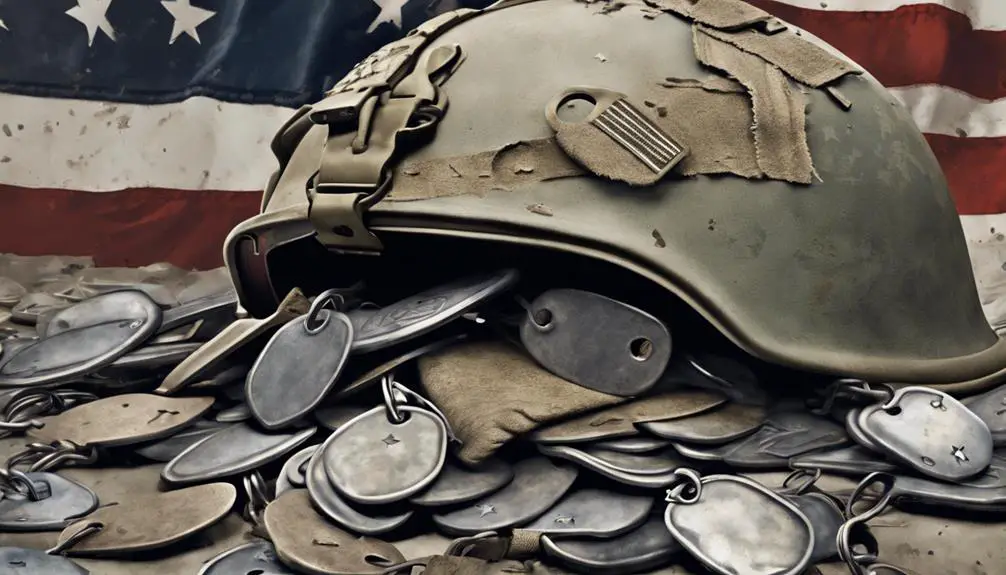When you encounter military slang, you might hear "buying the farm" or "getting waxed" to describe a soldier's ultimate sacrifice – death in combat. These phrases serve as a buffer, allowing personnel to communicate about fallen comrades without explicitly stating the harsh reality. This coded language helps maintain morale and distances soldiers from the trauma of war. The use of euphemisms is rooted in history, from ancient Greece to modern warfare. As you explore the world of military slang, you'll discover more about the complex dynamics of language in warfare and the significance of honoring fallen heroes.
History of Military Euphemisms
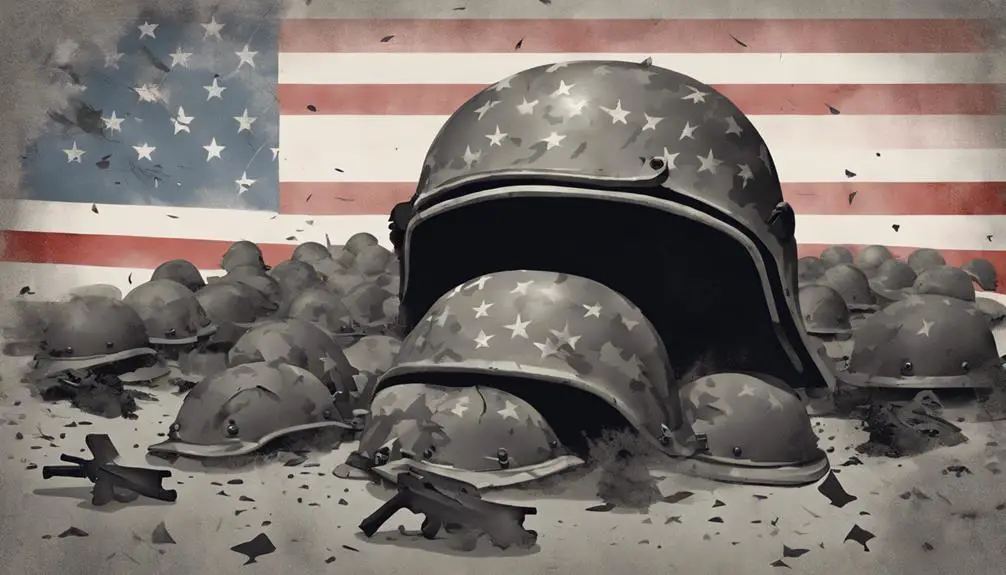
Since ancient times, you've likely wondered why militaries have relied on euphemisms to describe the harsh realities of war, and the origins of this phenomenon are worth exploring. The use of euphemisms in warfare dates back to ancient civilizations, where leaders sought to maintain morale and avoid demoralizing their troops. This euphemism exploration was driven by the need to communicate sensitive information without causing panic or disrupting troop morale.
In ancient Greece, for instance, the term 'struck by fate' was used to describe fallen soldiers. Similarly, during World War I, the term 'shell shock' was coined to describe soldiers suffering from what we now know as post-traumatic stress disorder (PTSD). The language barrier between military personnel and civilians also contributed to the development of euphemisms. Militaries developed a unique language to describe the harsh realities of war, which civilians often didn't understand. This created a divide between those who served and those who didn't, further solidifying the need for euphemisms. As you explore further into the world of military slang, it becomes clear that euphemisms have played a significant role in shaping our understanding of war.
Killed in Action (KIA) Explained
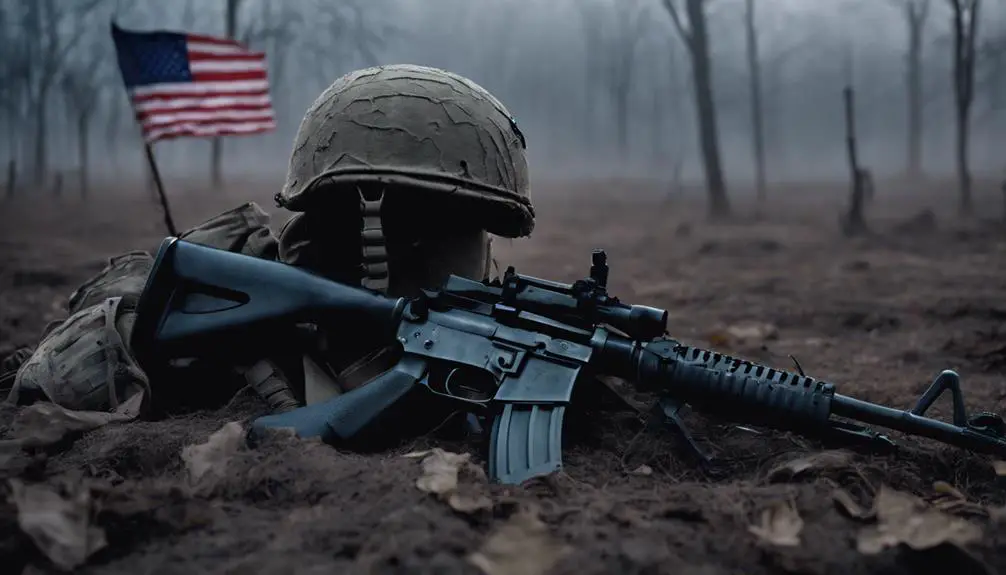
One of the most commonly used military slang terms, Killed in Action (KIA), is a euphemism that has been employed by militaries worldwide to describe the ultimate sacrifice made by soldiers in combat. You may have come across this term in news reports, military documents, or even in conversations with veterans. But what does it really mean? In simple terms, KIA refers to combat fatalities, where soldiers lose their lives during a military operation or battle. These war casualties are a harsh reality of war, and the term KIA serves as a somber reminder of the risks and sacrifices made by soldiers in the line of duty. When you hear that a soldier has been KIA, it means they have paid the ultimate price in service to their country. The term is often used to convey respect and gratitude for their sacrifice, while also acknowledging the devastating impact on their loved ones.
Origins of "Buying the Farm"

You've likely heard the military slang "buying the farm" to describe a soldier's death, but where did this phrase originate? The answer lies in the early 20th century, when rural fatalities were more common due to farm accidents. In the United States, farming was a hazardous occupation, and accidental deaths were frequent. Insurance companies would often pay out a substantial sum to the family of a deceased farmer, allowing them to "buy the farm" – a phrase that originally meant to pay off the mortgage on a farm. Over time, the phrase took on a darker connotation, as soldiers began using it to describe their own mortality. In the midst of war, the phrase became a morbid joke, implying that a soldier's death was the ultimate "insurance payout." Today, "buying the farm" remains a haunting reminder of the harsh realities of war.
The Meaning of "Getting Waxed"
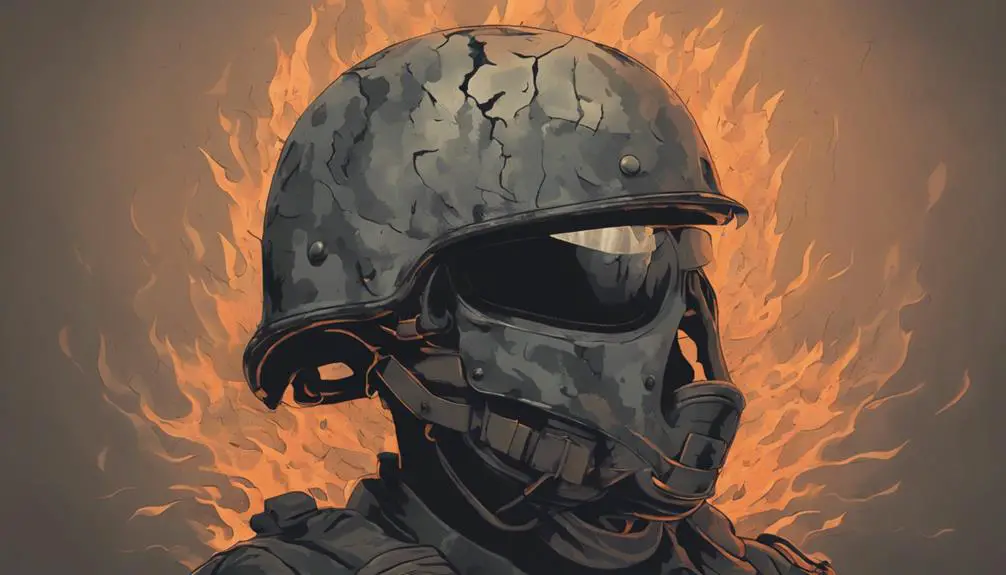
Exploring 'waxed' is a slang expression used by military personnel to describe the act of being killed in action, and its origins are shrouded in mystery, leaving many to wonder how this phrase became synonymous with death on the battlefield. As you investigate the world of military slang, you'll find that 'getting waxed' is just one of many linguistic shortcuts used to describe the harsh realities of war. This phrase, in particular, is often used to convey the sudden and unexpected nature of death in combat. You might hear a soldier say, 'He got waxed in the ambush,' to convey the shock and finality of losing a comrade. The phrase is often used to cope with the emotional toll of battle fatigue, allowing soldiers to momentarily detach from the trauma of war. Despite its mysterious origins, 'getting waxed' has become an integral part of military vernacular, serving as a somber reminder of the ultimate sacrifice made by those who serve.
Fallen but Not Forgotten
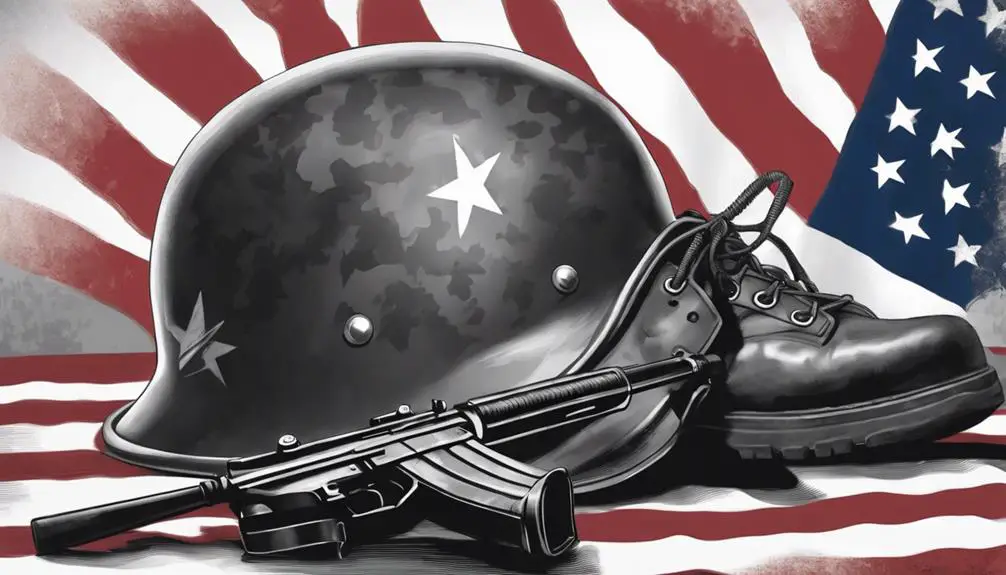
As the military community comes to terms with the loss of a comrade, they find solace in remembering the fallen, ensuring their sacrifice is not forgotten. You'll often see their names etched on an honor roll, a poignant reminder of the ultimate price they paid. Memorial services are held to pay respects, with fellow service members, family, and friends gathering to celebrate their lives and mourn their passing. These ceremonies provide a sense of closure, allowing those affected to begin the healing process. You'll hear stories of their bravery, their laughter, and their kindness, keeping their memory alive. The military community takes pride in honoring its fallen heroes, ensuring their sacrifice is never forgotten. By keeping their memory alive, you're reminded of the sacrifices made to protect freedom and democracy. As you reflect on the lives lost, you're filled with a sense of gratitude and respect for those who've given their all.
The Rationale Behind Euphemisms
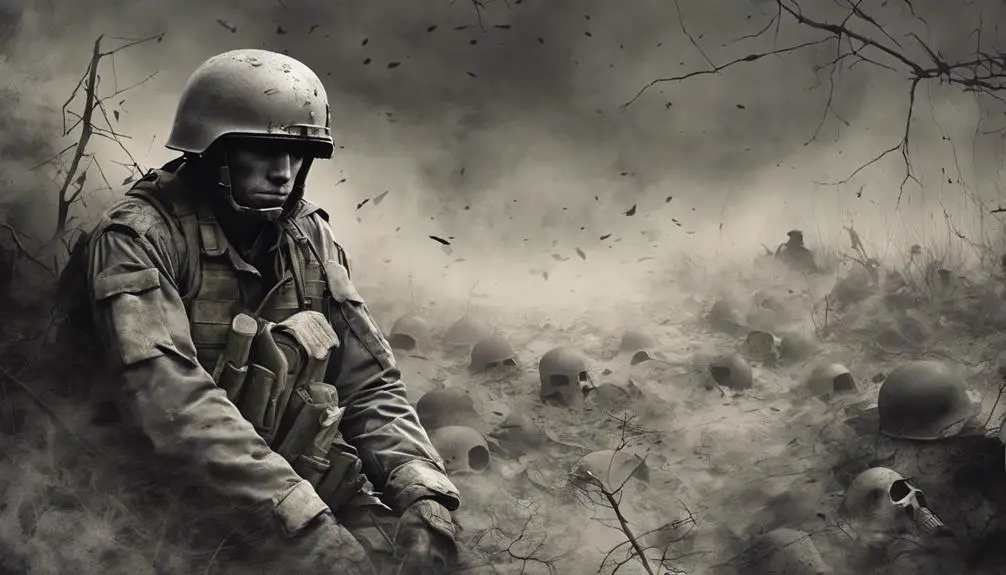
While the military's use of euphemisms to describe death may seem insensitive, it serves an essential psychological purpose by softening the emotional blow of losing a comrade. You might think it's just a euphemistic way to avoid saying someone died, but it's more than that. Using phrases like "bought the farm" or "went west" creates emotional distancing, allowing soldiers to cope with the trauma of war. This linguistic relativity helps you process the harsh reality of combat without becoming overwhelmed. Euphemisms become a coping mechanism, enabling you to maintain a level head in the face of tragedy. By using indirect language, you're able to temporarily disconnect from the emotional impact of a comrade's death, allowing you to continue functioning in a high-stress environment. This doesn't mean you're ignoring the loss; it's a mental survival tactic that helps you deal with the trauma.
Security Concerns and Coded Language
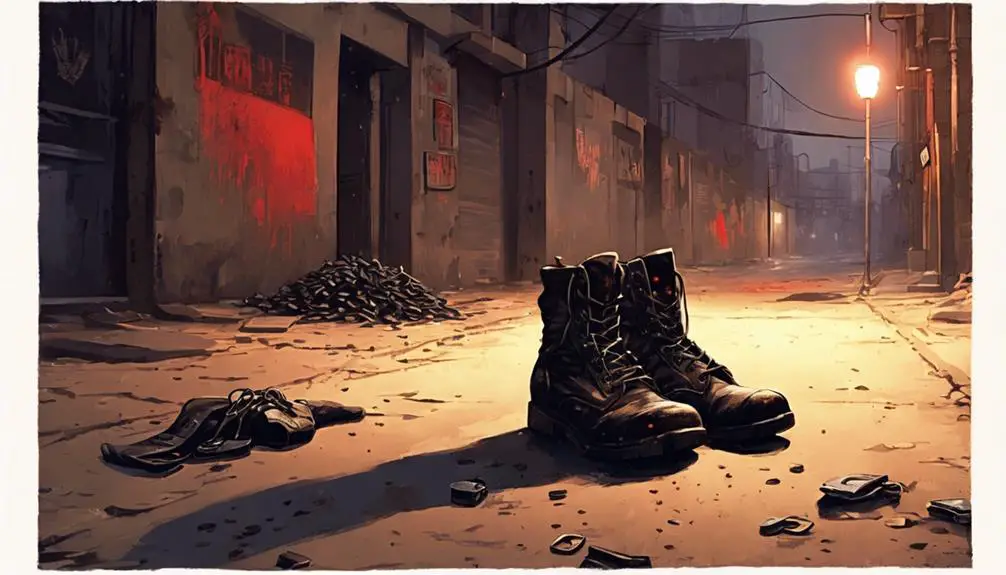
You've likely noticed that military slang for killed often sounds more like a cryptic message than a straightforward description of a tragic event, and this coded language serves a vital purpose in maintaining operational security. By using phrases that don't explicitly convey the severity of the situation, military personnel can prevent sensitive information from falling into the wrong hands. This is particularly important in high-stakes operations where security protocols are paramount. Coded messages can be used to convey complex information quickly and discreetly, ensuring that only authorized personnel are aware of the situation.
In the heat of battle, clear communication is essential, and coded language helps to minimize misunderstandings. It also prevents enemy forces from intercepting and exploiting sensitive information. By using coded language, military personnel can maintain a level of secrecy, protecting their operations and personnel. This emphasis on security is a key aspect of military communication, and it's essential for successful operations.
Evolution of Military Slang
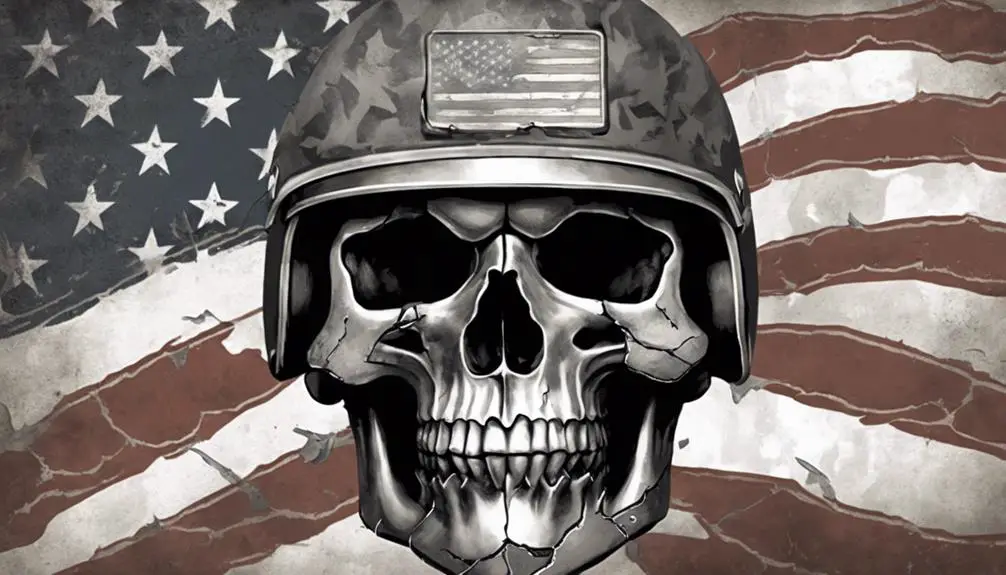
Military slang has undergone significant transformations over time, adapting to new technologies, tactics, and cultural influences that reflect the dynamic nature of warfare. You can trace its evolution back to ancient times, where slang was used to convey secret messages on the battlefield. In ancient Greece, for instance, soldiers used codes and ciphers to communicate without being detected by the enemy. This early form of slang in ancient warfare was essential for success in battles.
As warfare evolved, so did the language of camouflage. During World War I, soldiers used slang to describe their surroundings, creating a language of camouflage to avoid detection. For example, they'd call a trench a 'dugout' or a 'foxhole.' This language helped them blend in and gain a tactical advantage.
Throughout history, military slang has adapted to new technologies and cultural influences. You've seen it in the use of radios, where operators used coded language to convey messages. Even today, military slang continues to evolve, reflecting the changing nature of warfare. Understanding the evolution of military slang provides valuable insights into the dynamic nature of warfare and its impact on language.
Morale and the Language of War
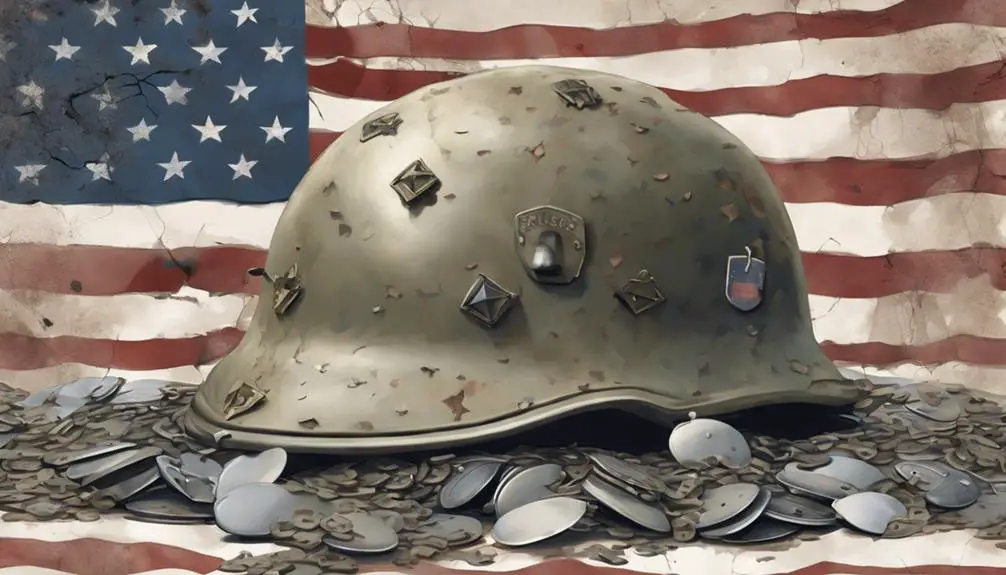
On the battlefield, your ability to cope with the harsh realities of war often depends on the language used to describe the experience, which can either boost or deflate morale. The words and phrases used can have a significant impact on your mental state, influencing how you perceive and respond to the chaos around you. Battle cries, for instance, are designed to intimidate the enemy and instill confidence in your own troops. War rhetoric, on the other hand, can be used to dehumanize the enemy, making it easier to engage in combat. The language used can also affect how you process the trauma of war. Euphemisms like 'collateral damage' can help distance you from the harsh realities of war, while blunt descriptions can be overwhelming. Understanding the impact of language on morale is vital, as it can be the difference between victory and defeat. By recognizing the power of words, you can harness their potential to boost morale and gain a psychological edge on the battlefield.
Deciphering the Military Lexicon
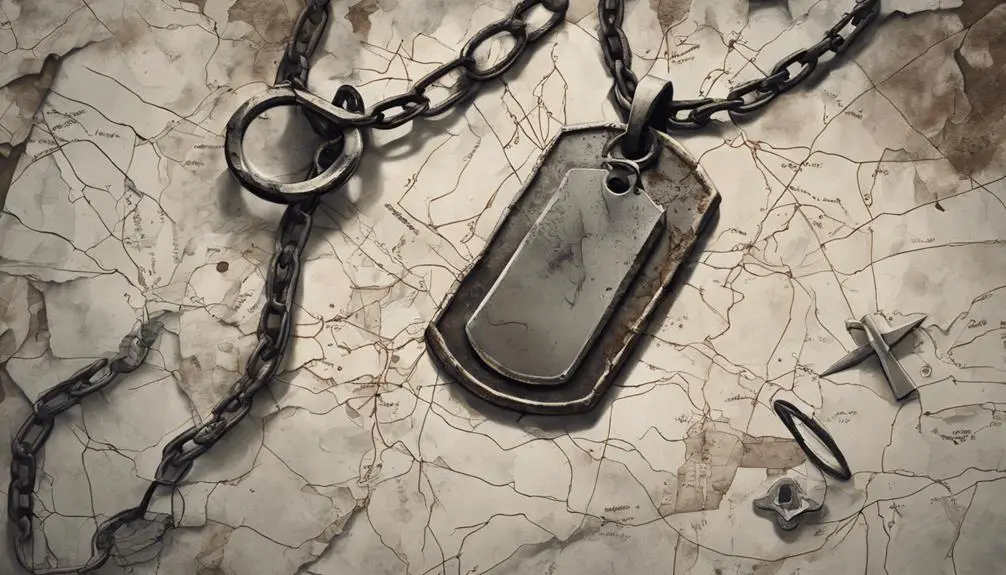
As you navigate the complexities of war, you're bound to encounter a unique dialect that pervades every aspect of military life, where colloquialisms and slang become an integral part of the battlefield's cultural fabric.
Deciphering the military lexicon requires an understanding of the cultural nuances that shape the language. Military jargon is more than just a collection of slang terms; it's a reflection of the military's distinct culture and values. To effectively communicate, you need to be familiar with the nuances of military language, which often convey complex ideas and emotions in a concise manner.
You'll encounter terms like 'KIA' (killed in action) or 'WIA' (wounded in action), which serve as euphemisms for the harsh realities of war. Understanding these terms is essential, as they're often used to convey critical information quickly and efficiently. By grasping the intricacies of military jargon, you'll gain insight into the cultural fabric of the military and improve your ability to communicate effectively in high-stakes situations.
Frequently Asked Questions
Are Military Slang Terms Only Used in the US Military?
You might think military slang is unique to the US military, but that's not the case. Global military slang adoption is a real phenomenon, with terms borrowed and adapted across international forces. Cultural influences on military slang development are significant, with local dialects and colloquialisms shaping terminology. For instance, the British military uses "squaddie" for a soldier, while the Australians use "digger." These variations highlight the diverse origins of military slang.
Can Civilians Use Military Slang in Casual Conversations?
You're wondering if civilians can use military slang in casual conversations. On one hand, it's a form of cultural appropriation, borrowing from a unique cultural context without fully understanding its significance. On the other hand, linguistic evolution is all about adopting and adapting language. If you're respectful and mindful of the origins, using military slang can add flavor to your conversations. Just be aware of the context and connotations, lest you come across as insensitive or pretentious.
Are Military Slang Terms Officially Recognized by the Military?
You're wondering if military slang terms are officially recognized by the military. The answer is, not exactly. While military language evolves, and slang terminology is used, there aren't strict standards governing its use. Military language is often a blend of formal and informal communication. The military doesn't formally recognize or regulate slang, allowing it to emerge organically through cultural and social influences within the armed forces.
Do All Military Branches Use the Same Slang Terms?
You'll find that each military branch has its own unique slang terms, often shaped by cultural influences and branch-specific experiences. For instance, the Navy has "deck ape" for a sailor who works on deck, while the Army has "grunt" for an infantry soldier. These branch-specific slang terms reflect the distinct cultures and histories of each service, making them an integral part of military identity.
Are Military Slang Terms Used to Desensitize Soldiers to Death?
You're dropped into the trenches of war, where the stench of death lingers in every breath. To survive, you need emotional detachment, a shield to deflect the horrors. Verbal coping mechanisms, like military slang, become your armor. By using terms like "bought the farm" or "bitten the dust," you create distance between the brutal reality and your psyche. It's not about being callous; it's about self-preservation, a mental shield to keep the trauma at bay.

